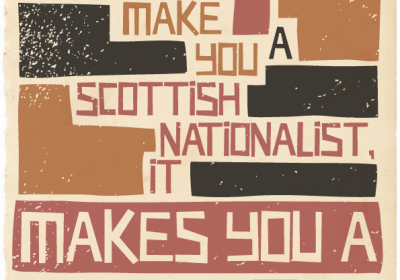Those who were expecting to see the supporters of Scottish independence dispirited ― and who hoped that the issue of independence was settled for at least a generation ― were quickly disappointed after the September 18 referendum.
This defeat, in which the pro-independence vote lost by roughly 45% to 55%, bears the seeds of future victory ― for at least three reasons.
Murray Smith
The result for Jose Bove in the April 22 first round of Frances presidential election in the overseas territory (the polite term for colony) of New Caledonia, known as Kanaky to its indigenous inhabitants, was interesting. Bove came in fourth with 5.88%. But in the predominantly Kanak provinces of the North and the Loyalty Islands, his scores were respectively 10.89% and 14.55%. The main reason was the active support given to Bove, who has frequently visited the territory, by the Union of Kanak and Exploited Workers (USTKE).
The first striking thing about the initial round of the French presidential election, held on April 22, was the extraordinarily high turnout nearly 85%. You have to go back to the 1965 election to find a slightly higher figure. This was a sign of the increasing politicisation of French society in recent years, as was the fact that more than 3 million new electors registered to vote.
France has been absorbed by a debate over the right of young Muslim women to wear the hijab, which includes the Islamic headscarf, in state schools.
